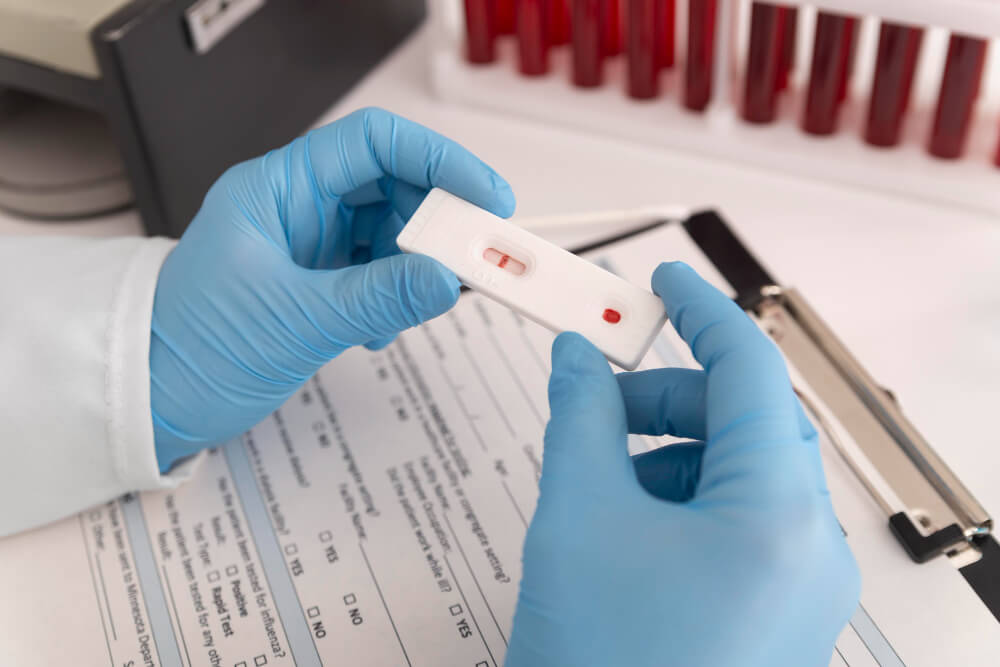HIV Testing and PrEP Medication: A Comprehensive Guide to Prevention
HIV (Human Immunodeficiency Virus) is a serious health condition that can lead to AIDS if left untreated. However, with advancements in medical science, HIV can now be effectively managed and prevented. Regular HIV testing and the use of pre-exposure prophylaxis (PrEP) are crucial strategies for preventing the spread of HIV.

The Importance of HIV Testing
HIV testing is a vital step in preventing the spread of the virus. Regular testing allows individuals to know their HIV status and take appropriate steps to protect themselves and others.
- Early Detection Early detection of HIV infection is essential for accessing timely treatment and preventing the progression of the disease.
- Peace of Mind Knowing your HIV status can provide peace of mind and allow you to make informed decisions about your health.
- Preventing Transmission If you are HIV-positive, early diagnosis and treatment can help prevent the transmission of the virus to others.
How HIV Testing Works
HIV testing involves a simple blood test that can be performed in a healthcare provider’s office, at a community health center, or at home.
- Rapid Tests Rapid HIV tests provide results within minutes.
- Laboratory Tests Laboratory tests are more sensitive and can detect even low levels of the virus.
- Confidential Testing HIV testing is confidential, and your results will be kept private.
Pre-Exposure Prophylaxis (PrEP)
PrEP is a medication that can significantly reduce the risk of acquiring HIV infection. It is recommended for individuals who are at high risk of exposure to HIV, such as those who have unprotected sex or share needles.
- How PrEP Works PrEP works by preventing HIV from taking hold in the body. It is most effective when taken consistently as prescribed.
- Benefits of PrEP PrEP can significantly reduce the risk of HIV transmission, even for individuals who are at high risk.
- Accessing PrEP PrEP is available through healthcare providers and some community health centers.
Choosing an HIV Testing and PrEP Provider

When selecting a healthcare provider for HIV testing and PrEP, consider the following factors:
- Expertise Look for a healthcare provider who has experience in HIV prevention and treatment.
- Confidentiality Ensure that the provider maintains strict confidentiality regarding your personal information and test results.
- Accessibility Choose a provider who is convenient for you to see, whether in person or through telemedicine.
The Role of Healthcare Providers in HIV Prevention
Healthcare providers play a crucial role in promoting HIV prevention and encouraging individuals to get tested and consider PrEP.
- Education and Counseling Providing education and counseling about HIV prevention and risk reduction.
- Offering Testing and PrEP Making HIV testing and PrEP readily available to patients.
- Addressing Stigma Challenging stigma and discrimination associated with HIV.
Reducing Stigma Surrounding HIV
HIV-related stigma can be a barrier to testing and prevention. It’s important to promote understanding and acceptance of individuals living with HIV.
- Education and Awareness Raising awareness about HIV and dispelling myths and misconceptions.
- Supporting People Living with HIV Providing support and resources for individuals living with HIV.
HIV testing and PrEP are essential tools for preventing the spread of HIV and improving the health and well-being of individuals at risk. By seeking regular testing, considering PrEP if appropriate, and addressing stigma, we can work towards a future where HIV is no longer a major public health concern. Remember, early detection, prevention, and support are key to combating HIV and ensuring a healthier future for all.
